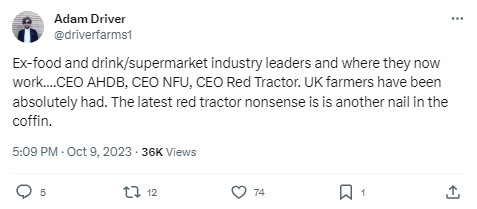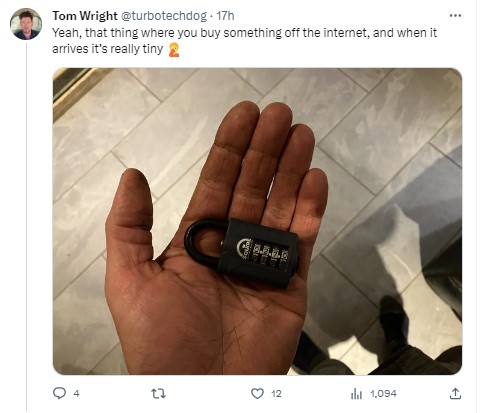Gleanings - AF Weekly news summary
18th October 2023
New green module for red tractor sparks claims of whitewash
AgriTrade News and Farmers Weekly, along with much of the rest of the farming press, report on the new ‘green’ module which Red Tractor are proposing to implement in 2024. AF reports regularly on the work which our Members, and all UK farmers, do to protect and preserve the natural environment, bio-diversity and improve sustainability. The disquiet around this new module, which the NFU say they have not been consulted over, is that having been championed by the British Retail Consortium (BRC), farmers fear that it is the supermarkets seeking to gain credit for their suppliers actions and achievements.
A Staffordshire farmer Clive Bailye was quoted as saying “It seems pretty obvious to me that the supermarkets, via the British Retail Consortium and Red Tractor, are going to collect the data, find out what credits we’ve got, and then start demanding that we offer it to them, along with the grain we sell.”
Red Tractor of course denies this, and we need to see a bit more detail before coming to judgement, but we do know that your hard won gains must not be handed back to third parties by stealth.
Agamemnon inspires assault on farming?
On 9th October farmer Adam Driver posted this tweet:

We had a quick check and the outgoing CEO of AHDB Tim Rycroft was previously employed by the Food and Drink Federation. Terry Jones, Director General (not CEO) of the NFU was previously at the FDF and the Provision Trade Federation, and Jim Moseley, CEO of Red Tractor was previously MD of General Mills and Director General and President of the FDF.
Whilst not casting any doubts on the integrity of any of these people, a cursory glance at the FDF website reveals their description of themselves as being “…a powerful voice for the UK’s vibrant, resilient and diverse food and drink manufacturing industry…With more than 1,000 members – from the most recognisable global brands to the most innovative start-ups – we represent the largest manufacturing sector in the country.”
It does appear that Adam has a point, the background of all of these farming ‘leaders’ would suggest the potential at least for some Trojan horse tactics. There is certainly a lively ongoing debate amongst farmers stimulated by the original tweet.
Ploughing ahead with robot tractors
The New Scientist reports on small, 2 metre wide, autonomous farm robots which were exhibited at their ‘New Scientist Live’ event.
The cyber tractors are guided by GPS and can harvest many different crops in close proximity to each other with great precision. This allows beneficial species to be planted very close together, making strip farming much less wasteful of cultivatable land than previously. (See Gleanings passim for articles on companion cropping and push-pull pest control.)
The hope is that the new technology will enable commercial farms to “stop planting vast, non-biodiverse fields and reap the benefits of mingling plants with different needs and mutually beneficial habits” according to Kit Franklin of Harper Adams University who has been working on the trials.
The tractor drills seed in 2-metre-wide rows and then a combine collects the plants once they reach maturity. This year, the university ran a trial with half a hectare of repeating rows of wheat, barley and beans. When scaled up it is anticipated that the geometry of arable fields will be perceived differently, with the robots able to drill, tend and harvest a mosaic of crops. There are other benefits such as nutrition, with strips of beans drawing nitrogen into the soil where the cereals need it, and so reducing the amount of fertiliser required.




